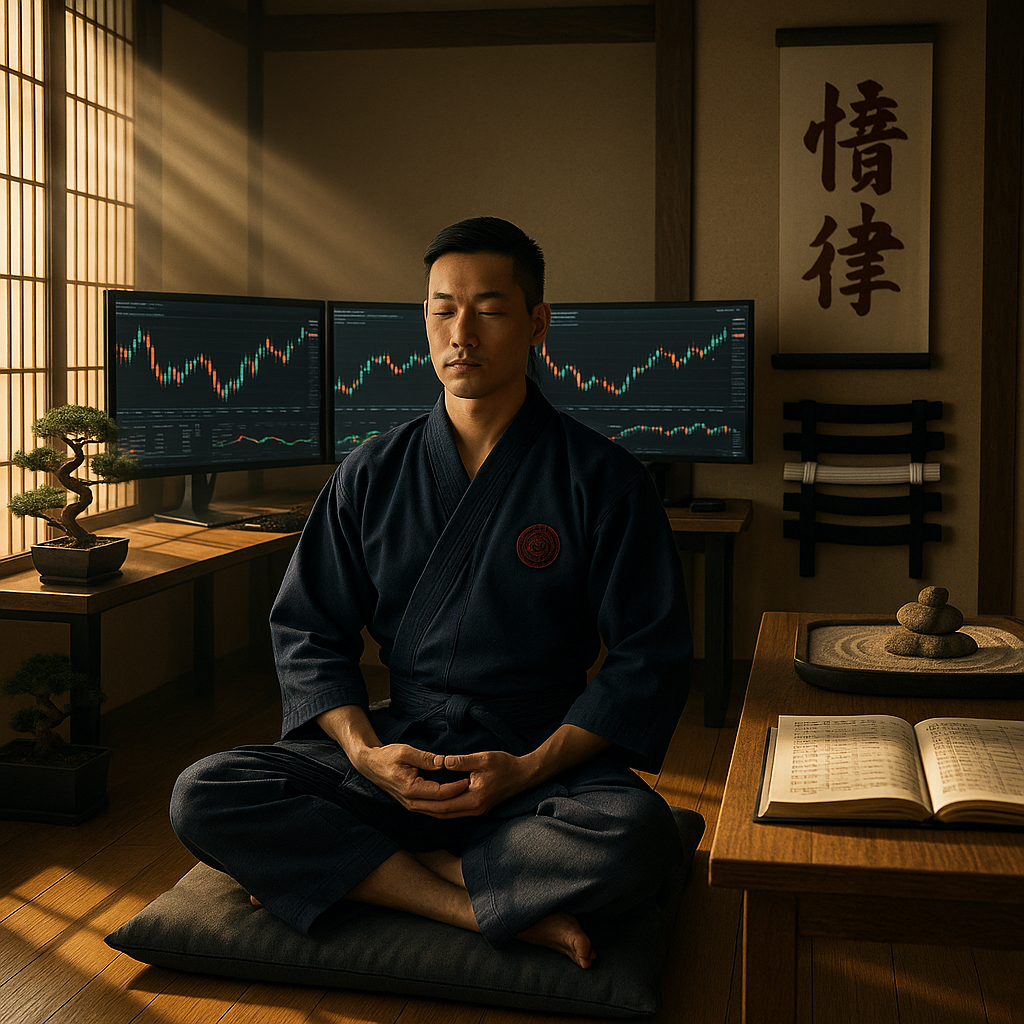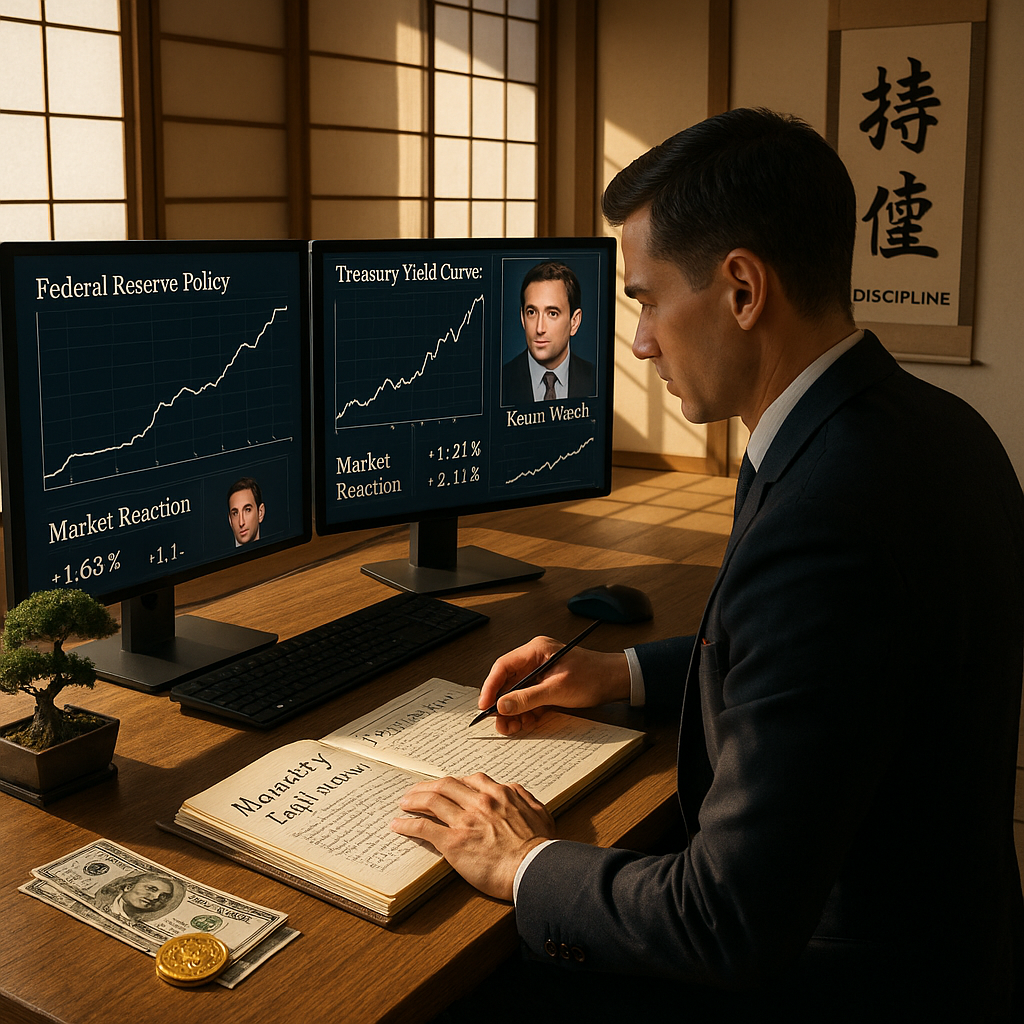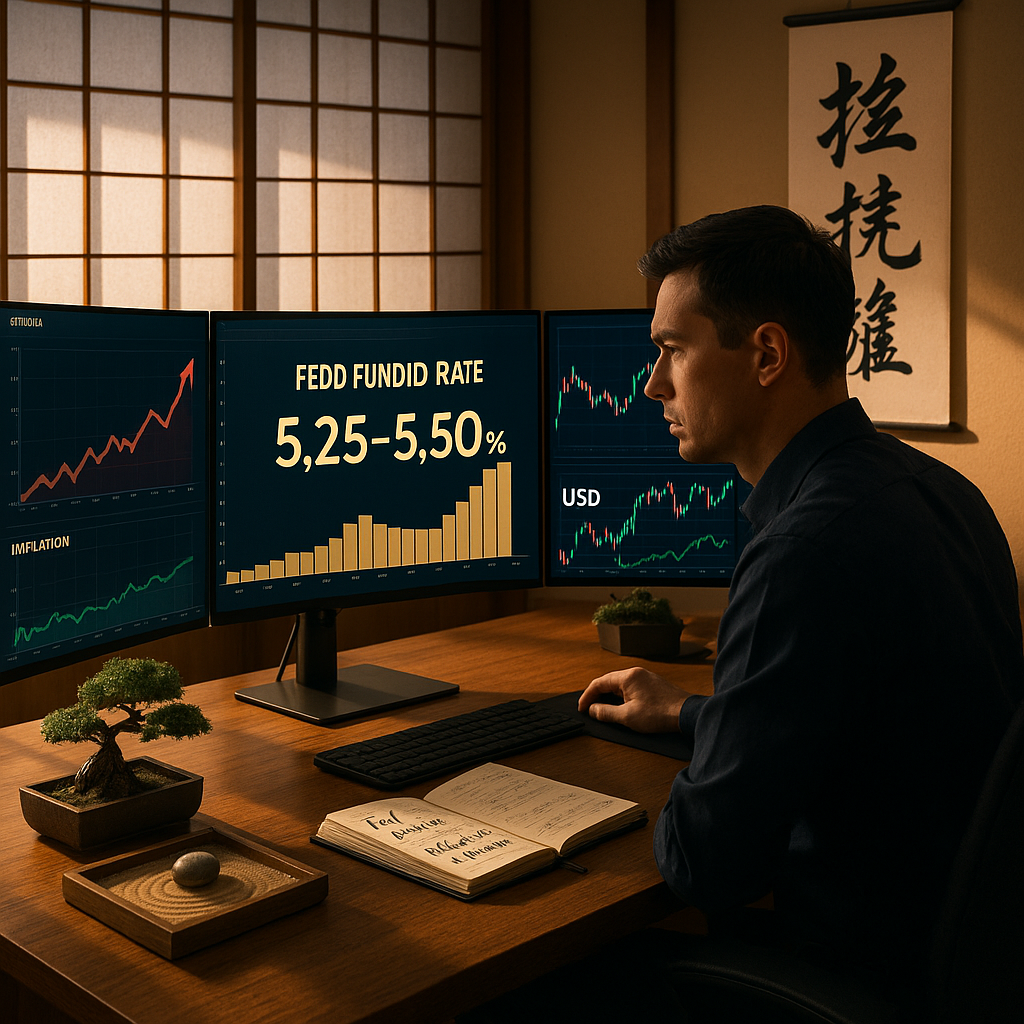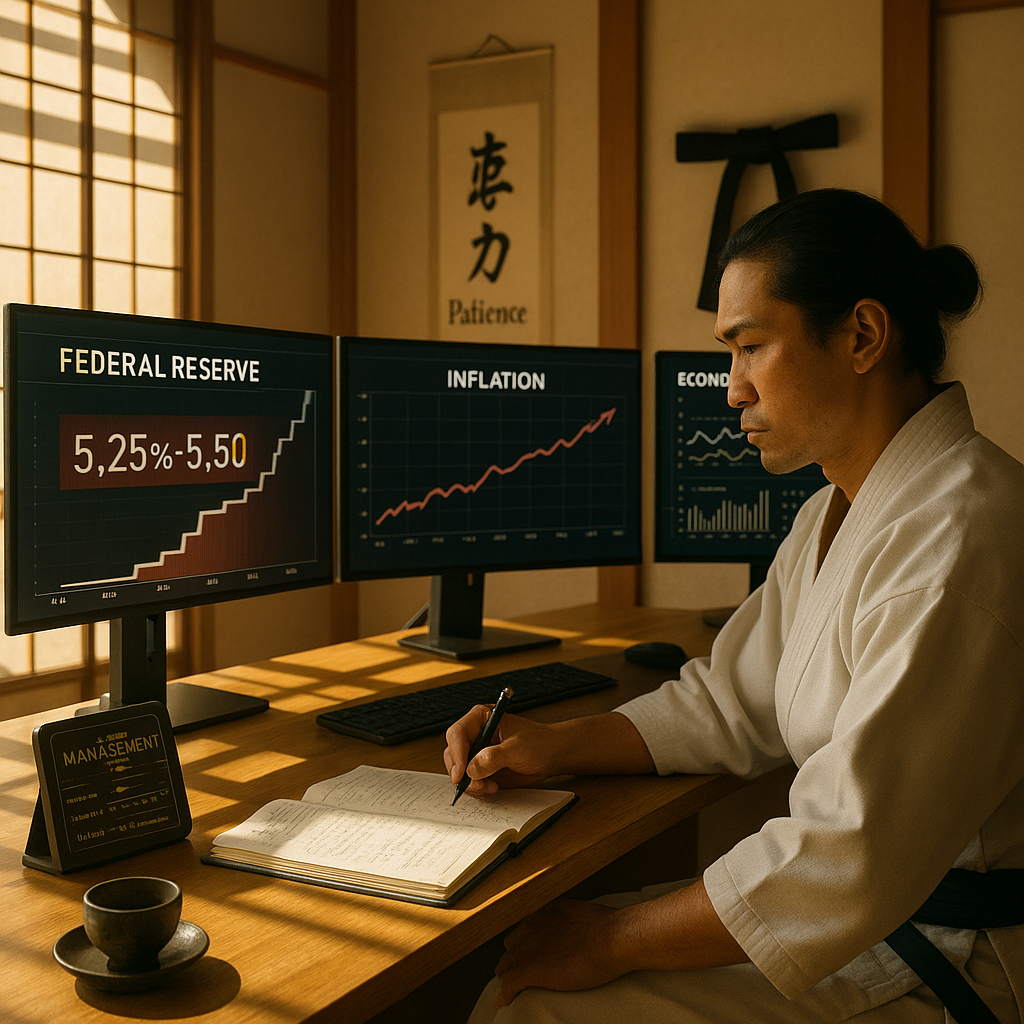Key Takeaways
- Continuous self-review sharpens conviction: Consistently analyzing both your winning and losing trades deepens your understanding, reduces emotional reactions, and fosters genuine confidence in your trading approach.
- Structured routines anchor performance in chaos: Relying on established pre-trade and post-trade routines cultivates discipline, keeping you steady even during market volatility.
- Objective data beats emotional noise: Tracking every trade with unemotional, objective metrics helps you evaluate your true edge, building authentic trust in your strategy through hard evidence, not wishful thinking.
- Acceptance of uncertainty cultivates resilience: Embracing losses and market randomness, instead of resisting or denying them, helps you remain adaptive and centered, rather than reactive or destabilized by pressure.
- Mindful detachment reframes setbacks as lessons: Viewing every outcome as a learning opportunity, rather than personalizing wins or losses, sustains composure and drives long-term growth.
- Growth requires moving beyond comfort zones: Deliberately seeking out challenges and embracing discomfort speeds up your mindset evolution, strengthening self-trust and making you more resilient to stress-induced mistakes.
- Accountability transforms trust into mastery: Sharing your results and reflections with a mentor or a trading community keeps you honest, reinforces discipline, and accelerates continuous improvement.
These principles equip traders for the real test: executing with discipline and trust when emotions surge and uncertainty dominates. The following sections delve into practical exercises and mindset shifts that anchor your transformation as a market warrior.
Introduction
Consistency is not forged on calm market days, but when price swings threaten to shake your conviction. It’s when every impulse tempts you to abandon your plan. It is under volatility that true trading progress is achieved. The difference between reacting impulsively and executing with calm confidence is not found in your charts alone. It’s rooted in the evolution of your mindset.
Building trust in your trading strategy under real-world stress requires more than optimism or surface-level motivation. Genuine progress depends on disciplined self-assessment, rigorous routines, and an unwavering separation of fact from feeling. Mastering these principles turns every period of uncertainty into a refining opportunity for growth and psychological strength.
Let’s examine clear steps that will help you fortify your mindset, deepen your discipline, and develop unshakeable self-trust, enabling you to thrive no matter how demanding the market becomes.
Stay Sharp. Stay Ahead.
Join our Telegram Channel for exclusive content, real insights,
engage with us and other members and get access to
insider updates, early news and top insights.
 Join the Channel
Join the Channel
Understanding Mindset Evolution in Trading
The foundation of lasting trading success is not merely technical proficiency, but a process of continuous mindset evolution. Trading psychology research demonstrates that the market is as much a test of your mental resilience as it is of your analytical skills. Markets shift unpredictably, rewarding those who can adapt and grow alongside them.
The Psychology-Performance Connection
Research among top traders and behavioral finance specialists suggests that up to 80% of trading outcomes are dictated by mindset and psychological factors, not by technical knowledge alone. This association is reflected in several core areas:
- Decision Clarity: Traders with an evolved mindset maintain composure and mental clarity in high-stress scenarios, avoiding emotional interference during decision-making.
- Risk Perception: Skilled traders accept risk as an inescapable aspect of the trading game, viewing it as manageable rather than threatening.
- Learning Orientation: Resilient traders treat wins and losses as neutral feedback, using every experience to fuel continuous learning.
In practice, this mindset performance link enables traders to act with conviction even when the market tests their patience or discipline.
Stages of Mindset Development
All traders undergo a journey of psychological development that shapes long-term performance. The path typically unfolds through four major stages:
- Unconscious Incompetence: In the beginning, traders are unaware of what they do not know, often struggling with emotional impulses and poor habits.
- Conscious Incompetence: Awareness grows, and traders begin to recognize their psychological weaknesses and how these flaws impact performance.
- Conscious Competence: With focused effort, traders start applying psychological strategies purposefully, integrating discipline into daily decision-making.
- Unconscious Competence: Finally, mental discipline and resilience become automatic, supporting optimal trading routines even under intense market pressure.
This journey mirrors the discipline demanded in martial arts or any path to mastery; the deliberate refinement of both skill and spirit.
Cultivating Genuine Trust in Your Trading Strategy
Lasting trust in your strategy is not granted by hope or streaks of luck. It develops from systematic evidence gathering, repeated practice, and disciplined review. This authentic trust is a foundational pillar. When pressure spikes, it’s your history of objective evaluation and process honesty that keeps you grounded.
Evidence-Based Confidence Building
Efficient confidence is constructed on the following proven practices:
- Performance Journaling: Track more than just entry and exit points. Record your emotional state, reasoning, and the context of every trade.
- Statistical Analysis: Measure your strategy’s performance across a broad range of market conditions (trending, consolidating, volatile, etc.).
- Process Adherence Metrics: Regularly review your commitment to your trading rules and routines. Consistency matters as much as outcome.
- Outcome Independence: Shift focus from profit and loss to quality of execution. Ask, “Did I follow my process?” rather than “Did I win?”
This philosophy extends beyond trading. In fields like healthcare, evidence-based treatment protocols are trusted because they are rigorously measured and refined. Similarly, robust risk management in finance is built on decades of backtested results. In marketing, trusted strategies rely on data-driven analysis rather than gut instinct. Across all industries, trust is anchored by measurable outcomes and transparent processes.
Overcoming Strategy Doubt
Every trader, regardless of experience, faces moments of doubt about their approach. Rather than abandon your plan impulsively, high-level traders respond by:
- Reviewing historical performance data to identify statistical strengths and weaknesses.
- Pinpointing specific environments where the strategy either thrives or falters.
- Adjusting risk or position size to manage uncertainty while continuing to collect relevant data.
- Discussing uncertainties with knowledgeable peers or mentors for objective feedback.
Similar review mechanisms are essential in professions ranging from medicine (where difficult cases demand second opinions) to law (where legal teams analyze precedents and past case results) and education (where teachers use assessment data to refine curricula).
Building Resilience When Stakes Are High
Markets inevitably present high-pressure moments, testing the strength of a trader’s mindset. Resilience is not merely about withstanding losses; it’s about recovering quickly, staying resourceful, and learning from adversity.
Psychological Anchoring Techniques
To thrive under stress, top traders establish solid psychological anchors:
- Pre-Trade Routines: Develop a consistent starting ritual, such as reviewing your plan or meditating briefly, that centers your focus before engaging the market.
- Stress Inoculation: Deliberately expose yourself to challenging situations, like trading through high volatility (within safe limits), to boost tolerance.
- Recovery Protocols: Outline clear steps for emotional reset after setbacks, such as taking breaks, journaling lessons learned, or focusing on restorative activities.
- Emotional Calibration: Train yourself to recognize emotional triggers in real time and deploy techniques for emotional regulation (like deep breathing or self-talk).
These techniques resonate beyond trading. In healthcare, surgeons rely on checklists and mental preparation before operations. In sports, athletes practice pre-game rituals and post-game recovery strategies. In high-stakes corporate roles, executives use structured debriefs to process setbacks and refocus.
Framework for Managing Uncertainty
The ever-present uncertainty in markets demands a systematic approach to risk:
- Probability Thinking: Shift from prediction to probabilistic assessment, considering “What is likely?” rather than “What will happen?”
- Risk Parsing: Deconstruct large, complex risks into smaller, more manageable elements.
- Scenario Planning: Mentally rehearse various outcomes, from best-case to worst-case scenarios, to avoid being blindsided.
- Disciplined Position Sizing: Adjust trades according to both conviction and broader market context, containing potential losses without stifling opportunity.
In sectors such as environmental science, teams use scenario planning to anticipate the impacts of policy changes or natural events. Financial analysts utilize detailed risk decomposition when modeling investment portfolios. Legal teams consider multiple case outcomes up front. These cross-industry strategies offer valuable tools for traders confronting an uncertain marketplace.
Accelerating Mindset Growth Through Challenge
Growth does not occur by remaining comfortable. Deliberately facing new challenges with managed risk propels both technical and psychological advancement.
Stay Sharp. Stay Ahead.
Join our Telegram Channel for exclusive content, real insights,
engage with us and other members and get access to
insider updates, early news and top insights.
 Join the Channel
Join the Channel
Structured Discomfort Practices
Apply controlled difficulty to stretch your capabilities methodically:
- Position Sizing Progression: Gradually increase trading size as process adherence and outcomes improve, rather than chasing profit.
- Multi-Timeframe Exposure: Practice trading over various time frames (intraday, swing, long-term) to develop adaptability and perspective.
- Market Condition Simulation: Intentionally trade or backtest during different market regimes, ranging from highly volatile to stable environments.
- Strategy Expansion: Slowly incorporate new tactics or asset classes to stress-test your rules, broaden your expertise, and foster flexibility.
Professionals in diverse industries benefit from structured challenges. Medical residents work through increasingly complex cases under supervision. Pilots train in flight simulators mimicking extreme weather. Tech companies stage “chaos engineering” drills to test system resilience. In the trading dojo, challenge is embraced as a vehicle for rapid evolution; not as recklessness but as disciplined stretching.
Community Accountability Structures
Support and accountability accelerate mindset transformation. Build robust feedback systems by:
- Joining dedicated trading accountability groups where results are shared, and discipline is encouraged.
- Exchanging trading journals with trusted peers for mutual review and constructive feedback.
- Participating in structured group reflection sessions to surface patterns and blind spots.
- Providing mentorship to newer traders (teaching reinforces your own psychological discipline and clarity).
Support structures are foundational well beyond trading. In education, peer review boosts teacher development. In healthcare, multidisciplinary teams share learnings to improve patient outcomes. In marketing teams, campaign retrospectives drive continuous improvement. This communal ethos resonates with the dojo spirit, a place of mutual advancement and shared mastery.
Practical Exercises for Daily Mindset Development
Theoretical knowledge must be converted into lived practice to drive meaningful progress. Daily routines and measurement provide the structure for disciplined psychological growth.
Daily Mindset Practices
Adopt focused rituals that engrain discipline and clarity:
- Morning Mindset Priming
- Spend ten minutes on trading-focused meditation or visualization.
- Review key principles and rules that will anchor your actions.
- Set specific psychological intentions, such as “I will remain detached from outcome” or “I will follow my process regardless of short-term results.”
- Trading Session Psychology
- Conduct a pre-trade emotional check-in (How am I feeling? What is my mental state?).
- Apply mid-session recalibration if you notice agitation or complacency.
- After trading, complete a mental debrief to examine what worked, what didn’t, and where mindset slipped.
- Evening Review Protocol
- Document significant emotions tied to key trades.
- Assess how well you upheld your psychological principles and routines.
- Identify concrete improvements for your next session, a plan for evolution, not just evaluation.
Other fields adopt similar structured processes. Athletes visualize performance, teachers engage in end-of-day reflection, and executives debrief major decisions for actionable insight.
Progress Tracking Metrics
Track your psychological evolution with deliberate metrics that reflect inner growth:
- Emotional Stability Ratings: Rate your stability and composure throughout trading sessions.
- Decision Quality Audits: Regularly evaluate decision-making processes irrespective of trade outcome.
- Recovery Speed Measurements: Note how long it takes to reset after losses or errors.
- Consistency Scores: Track adherence to strategy and process over time.
- Stress Management Scores: Assess effectiveness of relaxation and regulation techniques.
Data-driven tracking is widespread across professions: in healthcare (patient recovery metrics), finance (risk-adjusted performance analytics), sports (athlete recovery and discipline measures), and education (student progress rubrics). Traders can learn from these systems to refine self-awareness and promote steady improvement.
Conclusion
True trading mastery is not gained through speed, luck, or shortcuts. It is forged through the relentless and humble evolution of a disciplined, adaptable mind. Sustainable performance in the markets is anchored in psychological resilience, a capacity to face the unknown with clear focus, to transform every feedback loop into growth, and to trust a process validated by evidence.
From the initial stumbles of unconscious incompetence to the automatic skill of unconscious competence, the trader’s journey is marked by continuous learning, emotional discipline, and honest self-review. This is the heart of the dojo philosophy: daily pursuit of mastery, rooted in structure, humility, and resilience.
By embracing structured challenges, accountability partnerships, and daily mindset rituals, traders cultivate the mental stamina required to thrive in even the harshest market storms. Real progress arises not from shortcuts, but from consistent practice and sincere reflection. Every day in the trading dojo is an invitation to sharpen your edge. Those who commit to self-mastery (who understand that market mastery is achieved by mastering oneself) will not only endure uncertainty but excel within it.
The path ahead is for the disciplined. The next era of trading excellence will belong to those who can not only adapt, but anticipate, grow, and lead with structure, conviction, and integrity. Strategy. Discipline. Mastery. This is the way of the market warrior.
trading psychology
discipline rituals
position sizing
focus rituals
emotional reset rituals





Leave a Reply